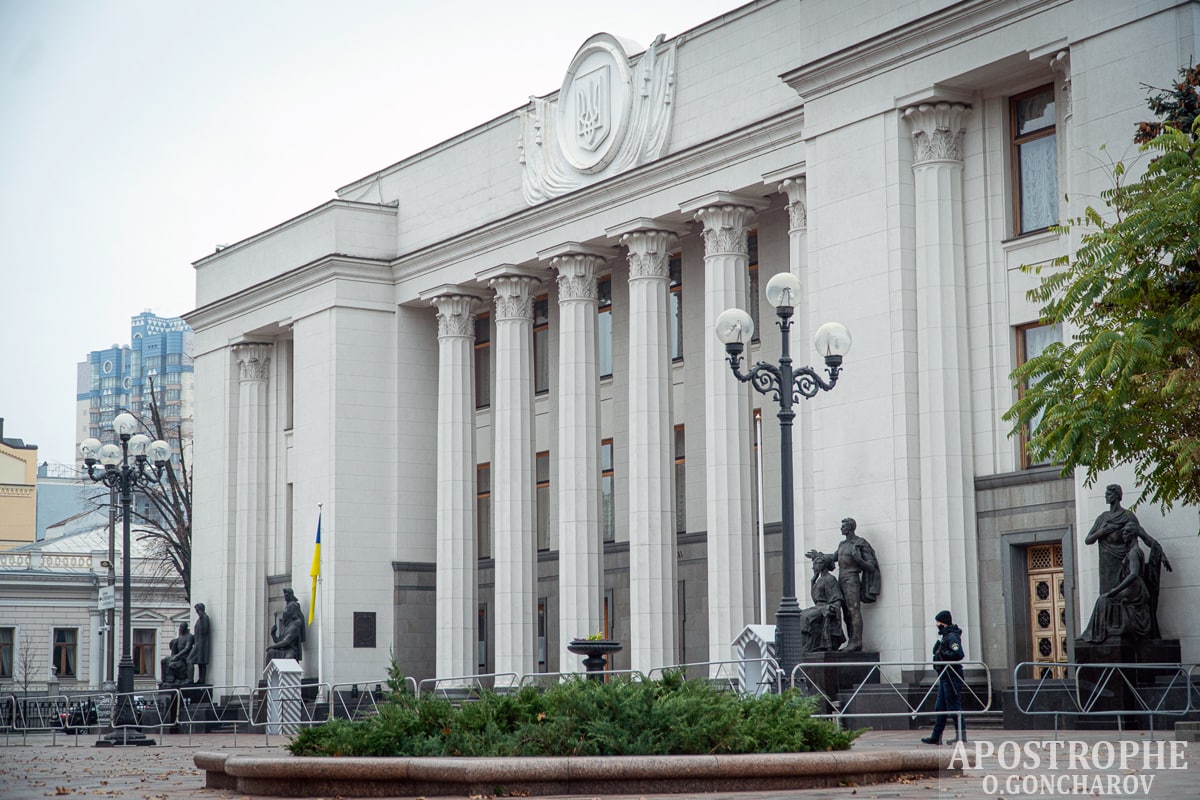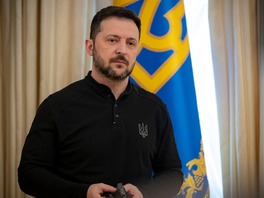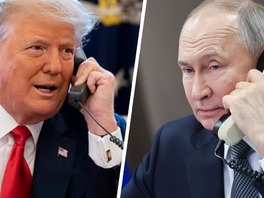On September 23, Ukraine’s Parliament adopted the so-called anti-oligarch law in the second reading, with 279 MPs voting in favor of the bill. 229 MPs of the Servant of the People faction supported the law, joined by their colleagues from Dovira, For the Future, and partially Holos. The Opposition Platform – For Life, European Solidarity, and Batkivshchyna factions voted against passing the initiative, with the latter one abstaining.
The bill was adopted via a new, special procedure, which didn’t allow the MPs to propose their amendments in the session hall. The rush in passing the bill, as well as active counter-efforts of the opposition, resulted in a series of legal inconsistencies. The Verkhovna Rada passed several conflicting amendments. In particular, one amendment stipulates that the National Agency on Corruption Prevention will be responsible for adding information to the register of oligarchs, while another amendment grants this power to the Security and Defense Council. As a result, the Parliament has to either fix the discrepancies before the law is signed by the President or amend it afterward.
Overall, the bill has a series of legal inconsistencies that can potentially turn it into an instrument of political competition. In this case, what was supposed to be an effort to separate big business and politics could grow into a mechanism of eliminating political opponents. The effectiveness of the new law will largely depend on the political will of President Zelensky, who can either use it to improve the political system of Ukraine or to satisfy the interests of his entourage.
What Does the New Anti-Oligarch Law Stipulate?
According to the new law, a person may be considered an oligarch if they fall under three of the following four characteristics:
· they take part in political life (this includes anyone taking part in political activities, such as MPs, the president, governors, the government, the sponsors of political parties or political demonstrations, etc.);
· they have significant influence over mass media (e.g. the owners and co-owners of media platforms);
· they have control over a business monopoly;
· they have a net worth of one million subsistence minimums (approximately $89m) or more.
The Cabinet of Ministers, the National Bank, the Security Service, the Anti-Monopoly Committee, and the Security and Defense Council can all petition to add an individual to the oligarch registrar.
The National Security and Defense Council will be responsible for entering the information about the tycoons into the register.
The person that is under consideration to be added to the register must be notified by the National Security and Defense Council. The said individual, in turn, can object either in writing or in-person to the granting of the oligarch status.
Anyone included in the official registration will be subject to restrictions, including a ban on funding political parties and privatizing state assets. They will also be required to disclose their assets in exhaustive declarations.
Senior government officials will have to report any communications with them to the National Security and Defense Council. Exceptions to the reporting rule include meetings at formal, broadcasted events, or in court. An official may be fired for failing to file a declaration.
The Risks
First, as per the Constitution, the National Security and Defense Council does not have the power to classify businessmen, politicians, or media moguls as oligarchs. Hence, the critics of the newly passed anti-oligarch law insist on either creating a new body or transferring these powers to the National Agency on Corruption Prevention.
Second, the law doesn’t define the form and criteria for submitting a request to add someone to the oligarch register, nor does it set the deadline for deciding on the said petition. With this, the National Security and Defense Council shall scrutinize the requests at its own discretion, determining whether an individual qualifies as an oligarch. Moreover, the law doesn’t account for any procedures to review an individual’s explanation statement, appeal the decision, or exclude a person from the oligarch register if they no longer meet the corresponding criteria.
Third, the law fails to present a procedure for detecting contact with an oligarch. There are no requirements set for representatives of the oligarchs, and there is no procedure for the verification of contact information. These gaps may be used to dismiss or influence certain officials.
Fourth, the law doesn’t address potential conflicts of interest. For instance, there is a possibility that a National Security and Defense Council official could have undeclared contact with an oligarch. Alternatively, the National Security and Defense Council could receive a petition concerning one of its officials or their associates. The law does not provide a mechanism to handle these situations.
Fifth, the vagueness of the law in its criteria on the participation in political life leaves room for a situation that would have someone uninvolved in politics identified as an oligarch (such as a relative of a high-ranking official that has the corresponding net worth).
Sixth, there is no clear procedure for estimating the worth of an individual to be included in the register of oligarchs. For example, a person may own only a small share of a business, yet they may be classified as an oligarch if the said legal entity’s worth exceeds one million subsistence minimums (approximately $89 million).
Seventh, the law imposes restrictions on oligarchs that contain contradictions with the constitutional guarantees of freedom of political activity and the right of owners to dispose of their property.
Contradictory norms in the de-oligarchization law: how to fix the inconsistencies and what do they affect?
The haste in the passage of the bill, as well as the active opposition to it, have resulted in legal contradictions.
In particular, the Parliament supported two contradictory amendments. The first amendment, proposed by Speaker Razumkov, stipulates that the National Agency on Corruption Prevention will be responsible for adding oligarchs to the register. The second one, proposed by the committee, allocates this power to the National Security and Defense Council. As a result, the Parliament has to either eliminate the contradictions before the President signs the law or make changes after it enters into force.
The first option includes the Verkhovna Rada voting to fix the inconsistencies following the Rules of Procedure (as per Article 131). The Parliament can do it any time before the President signs the law.
Alternatively, the Verkhovna Rada can fix the contradictions after the law enters into force. This option provides for a standard voting procedure: submitting a bill to the Verkhovna Rada, having it on the agenda, undergoing the first and second readings, and then having the president sign it. While this path is longer and more complicated, it is also acceptable given that the law takes effect only six months after it enters into force.
Overall, the de-oligarchization saga continues, and some political forces and financial-industrial groups will try to ensure that the adopted law does not work.
Zelensky’s Motives and Their Potential Consequences
The adoption of the anti-oligarch law was fundamental for Zelensky. First of all, this topic is important for his electoral base. Ukrainians openly hate the oligarchs and welcome any decisions that would worsen their privileged position. Therefore, anti-oligarchic initiatives can yield noticeable political dividends to the president and his team, even in the light of the next election. Moreover, if the Parliament failed to pass the bill, Zelensky could have initiated a referendum on the matter, which, no doubt, would have resulted in a success for the president.
At the same time, the vote has illustrated the stability of Zelensky’s single-party majority and his positions in the Verkhovna Rada. Servants of the People secured 229 votes in favor of the bill.
Now, the Ukrainian authorities will showcase the anti-oligarch law to the West, using it as proof of Kyiv's efforts to combat corruption and reduce oligarchic influences on politics and the economy. Active resistance to the law, in turn, will prove useful in juxtaposing Zelensky, who stands with the people against the oligarchs, and the opposition sponsored by the oligarchs.
On the other hand, de-oligarchization can play a dirty trick on Zelensky. If high-profile oligarchs – such as Akhmetov and Kolomoisky – are not included in the register of oligarchs, the president will find it extremely difficult to explain the situation to society. In this case, he can expect serious disappointment from the public.
Similarly, there will be a disappointment if the de-oligarchic law becomes an instrument of political competition used to hinder the government’s opponents, especially at the local level.
Consequences for The Oligarchs and Their Next Moves
Immediately after the bill was introduced in Parliament, top Ukrainian oligarchs (Ihor Kolomoisky, Rinat Akhmetov, and Viktor Pinchuk) claimed they were "businessmen", "investors", and "just people of responsibility" rather than oligarchs. Petro Poroshenko, in turn, said the law was a personal attack against him as the principal opponent of the current government. Most likely, Poroshenko and Medvedchuk will be the first figures in the register of oligarchs, meeting at least three of the four criteria.
The main question is whether the oligarchs will accept the new rules of the game or actively oppose Zelensky. Both options are possible. So far, Kolomoisky and Pinchuk have reacted to the anti-oligarchic law calmly. Akhmetov, on the contrary, is actively opposing the bill, in particular by enlisting the support of (now former) Chairman of the Verkhovna Rada Dmytro Razumkov. Petro Poroshenko and Viktor Medvedchuk strongly oppose the law as well.
In Ukraine, the oligarchs own the lion’s share of TV channels, a significant source of information for Ukrainian citizens. If these channels decide to wage an information war against the government, it could instigate serious political turbulence. This, in turn, could result in decreased electoral support for Zelensky and his party. On the other hand, President Zelensky has the National Security and Defense Council at his disposal, an instrument capable of creating much more consequential problems for the oligarchs than the adopted law.
Moreover, the new anti-oligarch law will not lead to any instant changes for the oligarchs. The legislation shall take effect only six months after it enters into force. By then, the Venice Commission will conclude its assessment of the law, which might lead to certain corrections and changes in public opinion. The Constitutional Court will be reviewing the law as well, although this process may take years. The quickness of the review is largely dependent on whose interests prevail.
Additionally, the new law may become a tool used in a confrontation between the oligarchs themselves. The MPs affiliated with Kolomoisky (some MPs in the Servant of the People faction and parliamentary group For the Future) supported the bill, as well as the MPs affiliated with agrarian oligarchs Verevsky and Kosyuk (Dovira). Akhmetov, on the other hand, strongly opposed the law, which may result in the escalation of tensions between the oligarchs. In particular, Kolomoisky has rather adversary relations with both Akhmetov and Pinchuk. Hence, the bill may instigate a change in the distribution of power and spheres of influence, which, in turn, would have an extremely negative impact on both the social and political situation in Ukraine. If this is the case, one would have to focus on strengthening some oligarchs over the others rather than weakening them all.
Conclusions
The opposition and some political experts believe the de-oligarchization law might instigate some risks of dictatorship. At the same time, the opposition calls the so-called anti-oligarch law a fake, arguing that it will not weaken oligarchic influences in Ukraine. To support their judgment, they indicate that “the factions and MPs known to have strong connections with the oligarchs” supported the bill. Others, alternatively, consider the law a positive move forward, at least as the first step to decrease the power of oligarchs. There is also an opinion that the law on oligarchs will not have any meaningful impact, be it a positive or negative one. Is Zelensky’s de-oligarchization law a step toward dictatorship or an efficient mechanism to weaken oligarchic influences in Ukraine? For the time being, the question remains open.
However, one can identify four potential scenarios of how the situation might unfold.
· Scenario № 1. In this scenario, the government will force the oligarchs to accept new rules of the game, reducing their influence on politics. The oligarchs would agree to focus exclusively on economic activities, with the government guaranteeing the preservation of their assets. In this situation, Zelensky would emerge as the winner, easily getting elected for the second term.
· Scenario № 2. The law will be used selectively, and there will be no tangible impact on most of the oligarchs. It will mainly target lame ducks of the Ukrainian oligarchic scene, such as Poroshenko, Medvedchuk, and Firtash. Others – such as Akhmetov, Kosyuk, Fiala, and Kolomoisky – will superficially change the structure of their core businesses and media ownership, reaching an agreement with the government. With this, the oligarchs will refrain from supporting oppositional political projects in exchange for economic support. Some of the allied oligarchs could first be included in the register and then removed from it, demonstrating that they are no longer oligarchs. This scenario does not pose any particular threats to the government.
· Scenario № 3. The government will clash with some of the oligarchs, including Akhmetov, Poroshenko, Medvedchuk, and possibly Pinchuk, while forming coalitions with others like Kolomoisky and the agrarian oligarchs, such as Verevsky and Kosyuk. It will be a war among groups of influence. This, in turn, would result in significant political turbulence, as well as the use of media resources to exacerbate social divisions to bring others to power. In this case, the government will most likely retain its influence, but it will no longer be conditioned by Zelensky's electoral support but rather by the support of the allied oligarchs.
· Scenario № 4. The oligarchs will unite against Zelensky, primarily to prevent him from being re-elected. In this scenario, nearly all media will openly work against the government, leading to a significant drop in Zelensky and his party’s ratings. The de-oligarchic law will be blocked with the help of the Constitutional Court. Zelensky will not give up easily, resorting to the decisions of the National Security and Defense Council. However, with the drop in electoral support, Ukrainian society will see these actions as increasingly less legitimate and convincing. After neutralizing Zelensky, the oligarchs will compete for access to power.





